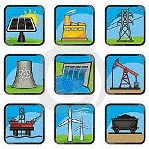Department of Agricultural Economics: Undergraduate Research

Op-Eds from ENSC230 Energy and the Environment: Economics and Policies
Date of this Version
Fall 12-13-2019
Document Type
Editorial
Citation
Op-ed from ENSC 230. Energy and the Environment: Economics and Policy, University of Nebraska-Lincoln, Department of Agricultural Economics, fall 2019
Abstract
Wind energy is the way of the future, and those who don’t have it will get left behind. Wind has already proven to be useful to countries in Europe, such as Denmark, Germany, and Spain. These countries are benefited from EU policy, to help alleviate some economic stress that might come from having diversified energy sources. This diversification of energy is good for countries economically and energy wise, allows them to not be too heavily reliant upon one source. This issue is clearly on display in America who is heavily reliant on oil and coal for example, the 1973 oil crisis. Wind and renewables are also good for the economy because encouraging they will bring new industry, which will create more jobs, and create a cheaper energy cost. The cost of wind energy is currently around 4 cents KwH. The external costs can be ignored when the right system is put in place. Many are concerned about extra costs about having to keep a thermal or hydro plant running to fulfill any gaps the wind might not produce. This is why diversification and improved capacity can solve any renewable energy issues. Hydro and wind energy go hand in hand, together the hydro can make up any loss the wind has. With a combination of all them, energy users will not have to worry about brownouts. The current renewable energy problem is optimization, and steps are already being taken to solve it. Wind takes less materials to use than coal, for example. Coal takes 687 gallons per MWh, compared to the 0 that wind energy requires (Pelwe, Smith). Coal emissions is also incredibly higher compared to wind emissions 2327 pounds of CO2 per MWh (Pelwe, Smith). Wind does in fact have some negative externalities, such as being an eyesore, too loud, and very small wildlife damage (Zerrahn). These problems can be mitigated and solved with proper placement of turbines, and advancement in technology. They also pale in comparison to coal externalities. In India the expansion of coal plants have lead to increased respiratory problems, while these effects are not seen on households by new non-coal plants (Gupta). There is also the increased amount of CO2 that is being pumped into the air, that will accelerate our already quick changing climate. These facts help prove that no matter the abundance of coal, the negative externalities of it outweigh the pros. At this time most average citizens have a small grasp on climate change and the role us humans play in it. This grasp needs to be expanded and by starting to put our money into renewables like wind, it can be expanded. The reduction wind energy creates in CO2 emissions will prove the point to those citizens who are still on the fence. It will also allow them to enjoy cheaper, cleaner energy. This will allow them to put the money they save on energy back into the economy, which will in turn stimulate the economy. This will then encourage more green and sustainable practices. Wind energy will be apart of this stimulation, creating jobs here in Nebraska, and across all 50 states. This will cover for jobs lost in the coal, and oil sectors, and allow for others to be trained for a career. Wind energy is not the only solution to our current energy crisis, but it certainly will be one of the main players. Wind energy might not be perfect for every area, an example of this would be the sandhills in Nebraska, turbines there could harm the Sandhill Crane migration. Sustainable practices should not have a negative impact on the environment. This does not mean leaving that space entirely open, other renewable energy can be put there, such as solar, thermal, or hydro. For future economic growth, and a healthier planet, these sustainable practices must not just be considered. These practices have to be implemented at all costs. The end result will outweigh any growing pains we might have to endure now. The goal of our generations should be to create a better world for future generations.
Included in
Environmental Indicators and Impact Assessment Commons, Natural Resources and Conservation Commons, Oil, Gas, and Energy Commons


Comments
Copyright 2019, Martin Brannaman. Used by permission